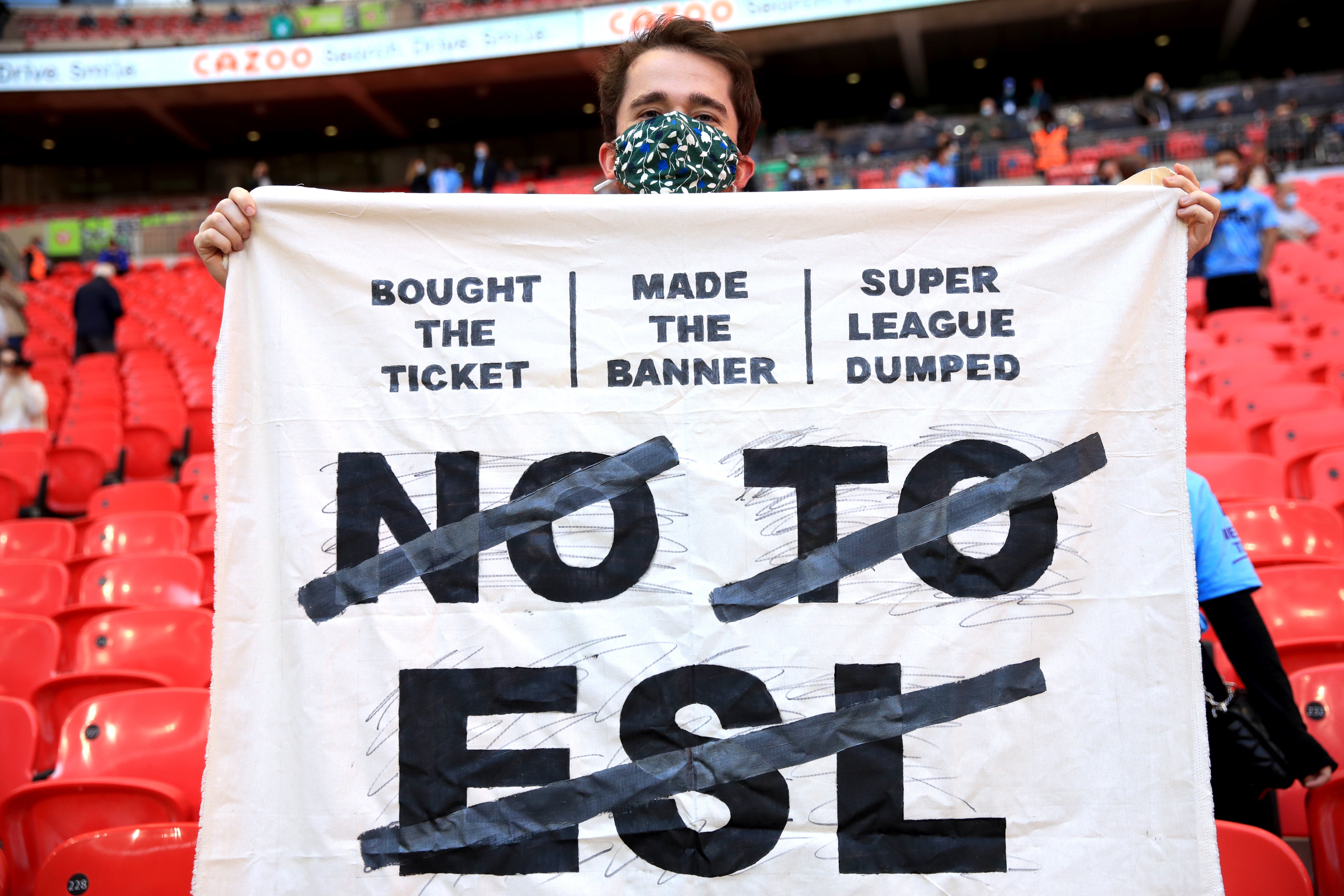Super League back in spotlight as European Court of Justice hearing begins
The Super League’s supporters argue Uefa and Fifa breached European competition law

Your support helps us to tell the story
From reproductive rights to climate change to Big Tech, The Independent is on the ground when the story is developing. Whether it's investigating the financials of Elon Musk's pro-Trump PAC or producing our latest documentary, 'The A Word', which shines a light on the American women fighting for reproductive rights, we know how important it is to parse out the facts from the messaging.
At such a critical moment in US history, we need reporters on the ground. Your donation allows us to keep sending journalists to speak to both sides of the story.
The Independent is trusted by Americans across the entire political spectrum. And unlike many other quality news outlets, we choose not to lock Americans out of our reporting and analysis with paywalls. We believe quality journalism should be available to everyone, paid for by those who can afford it.
Your support makes all the difference.The Super League case reaches Europe’s highest court this week, with its eventual decision likely to have profound ramifications for sport across Europe.
The controversial competition was officially founded on April 18 last year but had collapsed within 72 hours after nine of the original 12 clubs involved withdrew amid political pressure and fan outrage.
The companies behind the Super League argue that European and world football’s governing bodies, UEFA and FIFA, abused a dominant position under European competition law in first blocking the league’s formation and then in their efforts to sanction the clubs involved.
The 17th commercial court in Madrid referred the matter to the European Court of Justice in May last year.
The case, which has the reference number C-333/21, will be heard by a Grand Chamber of 15 ECJ judges, which is an indication of how potentially significant and complex it is thought to be. Often, cases referred to the Court are heard by chambers of three or five judges.
Written submissions in this case have already been sent to the court, including from 16 European Union member states.
From 1.30pm UK time on Monday, the participants in the case are expected to make oral submissions to the court.
On one side are the European Super League Company SL and A22, while on the other are UEFA and FIFA. LaLiga and the Spanish football federation (RFEF) have joined the case in support of UEFA and FIFA, while 20 or 21 EU member states with an interest in the case have indicated their intention to make oral submissions related to the case.
Each submission must last no more than around 15 minutes. The judges will then spend Tuesday asking questions of the participants involved. It is expected that only lawyers will speak on behalf of the rival parties, and major protagonists in the Super League saga such as Real Madrid president Florentino Perez are not expected to appear.
Sources close to the Super League say they are confident of success, and in the ECJ’s independence from political pressure despite the number of member states lining up to make oral submissions.
Once the hearing concludes on Tuesday afternoon or evening, the next step is the publication of an opinion by the Advocate General, a judge related to the court.
This opinion is not expected to be published until September at the earliest, however, due to the court’s summer recess.
The opinion is non-binding but very often the final judgement of the court, which comes later, bears strong similarities to it, so it could provide a strong indication of what the ultimate outcome will be.
On average cases last over 16 and a half months from referral to final judgement, with the referral in this case made in May last year.
The ECJ judgement will be an abstract interpretation of EU law, rather than a specific judgement on this case. However, the Madrid commercial court is then obliged to apply the ECJ ruling when it considers the case.
At the heart of the case are three clubs – Real Madrid, Barcelona and Juventus – who remain supportive of the Super League concept and argue that the current model of European football governed by UEFA is unsustainable.
The subject matter of the main proceedings is described in the referral document from the Madrid court to the ECJ as follows: “By preventing the organisation of the European Super League, the applicants (UEFA and FIFA) engaged in concerted practices and abused their dominant position in the market for the organisation of international club football competitions in Europe and the market for the marketing of the rights associated with such competitions.
“The applicant further seeks the adoption of interim measures aimed at enabling the organisation and development of the European Super League.”
The referral then lists six questions related to EU law which it wants the ECJ to consider.
A separate but related case involving the International Skating Union (ISU) will be heard by the same Grand Chamber on Monday morning.
The European General Court ruled in December 2020 that the ISU infringed competition law by banning athletes from its competitions if they had taken part in unauthorised events, with the matter now having been referred to the ECJ.
Join our commenting forum
Join thought-provoking conversations, follow other Independent readers and see their replies
Comments